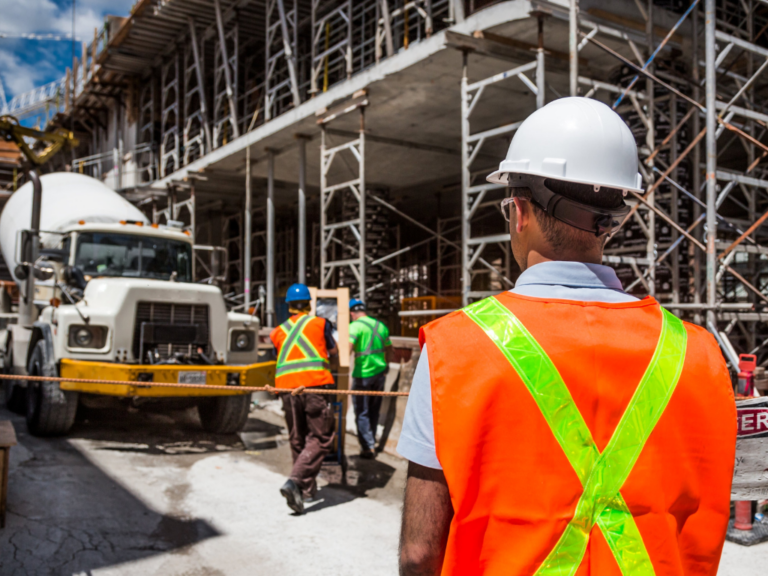Call us now:
Disputes in the construction contract in Vietnam often arise from various causes and can lead to significant consequences for the parties involved.

Disputes Due to Unclear Terms in Construction Contracts
What is a dispute due to unclear terms in construction contracts?
A dispute due to unclear terms in construction contracts occurs when one or more provisions in the contract are not clearly defined, leading to misunderstandings and disagreements between the parties involved. This often involves the interpretation of contract terms, including the scope of work, quality of materials, construction standards, completion deadlines, conflict resolution mechanisms, and issues related to costs and payments.
Causes of disputes due to unclear terms in construction contracts
The cause of this type of dispute is the use of vague or ambiguous language in the construction contract, making the understanding and interpretation of the contract subject to multiple perspectives.
To avoid disputes due to unclear terms in construction contracts, the parties should carefully draft the contract, using clear and unambiguous language. They may seek professional advice from lawyers or experts in the construction industry to ensure that all terms in the contract are clearly and fully understood.
Example of a dispute due to unclear terms in construction contracts
A typical example might occur as follows: A construction company (A) signs a contract with an investor (B) to build an office building. The contract contains a vague provision regarding “high-quality building materials.” The contract does not define specifically or provide any standards for what is considered “high-quality.” During construction, A uses a type of material they consider “high-quality” based on their experience and knowledge. However, when B inspects the quality of the work, they are not satisfied and believe that the materials used do not meet the “high-quality” standard they expected. B requests A to replace the materials with another type they consider “high-quality.” A objects, arguing that the materials used meet industry standards and have been used in similar projects. A also notes that replacing the materials would incur significant costs and delays in the project. Therefore, a dispute arises between the parties.
This case illustrates the importance of clearly and specifically defining terms in construction contracts. If the contract had specified or listed the required standards for “high-quality materials,” the dispute could have been avoided or resolved more easily. Such cases also highlight the importance of using clear language and avoiding ambiguity in any contract, especially in the construction sector where costs and consequences of ambiguity can be significant.
Disputes Over Construction Quality
What is a dispute over construction quality?
A dispute over construction quality is a common type of dispute in the construction industry where one or more parties involved (investors, contractors, designers, or end-users) are dissatisfied with the quality of the constructed work or feel that it does not meet the predetermined standards or requirements specified in the contract. This dispute can include various issues such as substandard materials, incorrect construction techniques, safety violations, or non-compliance with design standards.
Causes of disputes over construction quality
The cause of disputes over construction quality is the discrepancy between the expectations of the investor (or end-user) and the actual results provided by the contractor. Substandard construction quality can be due to the use of inferior materials, poor construction, or inadequate quality control and supervision.
To prevent disputes over construction quality, the parties need to detail the quality requirements, material standards, and construction procedures, and implement strict quality control measures throughout the construction process. Disputes over construction quality not only cause financial losses but also affect the project’s timeline and reputation. Therefore, applying preventive measures and effectively resolving disputes is crucial.
Example of a dispute over construction quality
An example might occur as follows: A construction contractor is hired to build a new office building for a large company. After the construction is completed and put into use, the investor discovers that some walls have cracks, and the paint quickly fades, not meeting the agreed standards in the contract. Additionally, some building materials used do not have the durability certification required by the contract. The investor demands that the contractor perform repairs and replace substandard materials at no additional cost. They argue that the use of substandard materials constitutes a contract violation and affects the overall quality of the construction. However, the contractor argues that the issues discovered are not the result of using substandard materials but due to uncontrollable external factors such as weather conditions, claiming it to be a force majeure event. Thus, a dispute arises.

Disputes Due to Design Changes and Owner Requests
What is a dispute due to design changes and owner requests?
A dispute due to design changes and owner requests occurs when the investor (owner) requests changes or adjustments to the design, scope of work, or other requirements after the contract has been signed and construction has started. These changes can affect the project’s timeline, costs, and quality and are not always easily accepted by all parties involved.
Example of a dispute due to design changes and owner requests
An example might occur as follows: An investor decides to build a new shopping center. Initially, the project is designed to include a specific number of retail stores, a food court, and a children’s play area. However, after the construction has started and progress has been made, the investor decides to add a cinema and office space to the project. This change requires redesigning part of the shopping center, including adding infrastructure such as electrical and sound systems for the cinema and modifying the structure to create office space. The construction contractor argues that this change will significantly increase the project’s costs and completion time and demands additional payment. However, the investor believes that the changes do not significantly affect the total project cost and completion time, while the contractor argues that the new requirements are a major change from the original contract and require financial and time adjustments. Thus, a dispute arises.
Disputes Due to Construction Delays
What is a dispute due to construction delays?
A dispute due to construction delays occurs when a construction project is not completed according to the agreed schedule in the contract between the investor and the contractor.
Example of a dispute due to construction delays
An example might occur as follows: A large real estate company signs a contract with a construction contractor to develop a high-end apartment complex. According to the contract, the project must be completed and handed over to customers within 24 months from the start of construction. After 18 months of construction, it becomes clear that the project will not be completed on time due to several months of delays. The delays are caused by issues with the supply chain of building materials, prolonged bad weather, and labor shortages. The investor faces pressure from potential customers and the risk of paying penalties for late delivery, demanding compensation and additional costs from the contractor due to the delays. They argue that the contractor did not take necessary measures to mitigate the delays despite being aware of potential risks. However, the contractor argues that part of the delay is due to design changes requested by the investor after the project started, as well as some uncontrollable external issues such as local temporary construction bans. They also emphasize that they timely informed the investor about the potential delays.
Disputes Due to Breach of Payment Obligations
What is a dispute due to breach of payment obligations?
A dispute due to breach of payment obligations in the construction sector occurs when one party in a construction contract does not comply with the agreed payment terms. This typically involves the investor not paying or delaying payment to the contractor or subcontractor, or the contractor not paying suppliers or subcontractors.
Example of a dispute due to breach of payment obligations
An example might occur as follows: A construction company is hired by a private investor to build an office building. According to the contract, the investor must make payments in installments upon completion of each project phase. For each phase, the contractor must submit progress reports and corresponding invoices. After completing the second phase of the project, the contractor submits an invoice for payment to the investor. However, the investor does not make the payment, explaining that they are dissatisfied with the construction quality. The contractor rebuts, asserting that the work has been carried out according to the technical requirements and the signed contract. The matter becomes a dispute as the investor continues to delay payment while demanding the contractor perform additional repairs not previously agreed upon in the contract. The contractor, on their part, threatens to stop work due to non-payment, increasing the risk of project delays.
Contact Us Now:
DCNH LAW
Address: 38B Tran Nhat Duat, Phuoc Hoa ward, Nha Trang city, Khanh Hoa province, Vietnam.
Phone: (+84) 343320223 – 974278893
Email: dcnh.law@gmail.com


